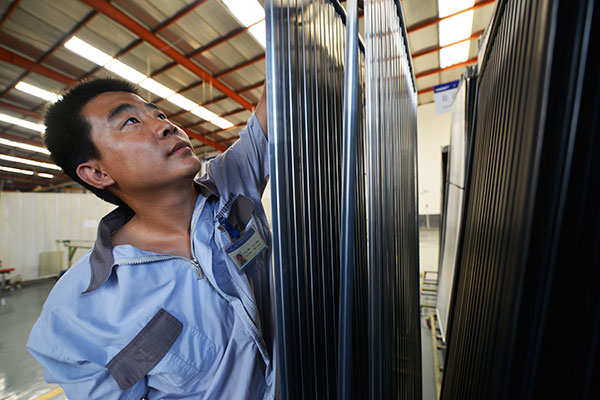 |
|
An employee works at a small refrigeration material company in Zouping county, Shandong province. [Dong Naide/China Daily] |
The 60 billion yuan ($9.4 billion) State fund for small and medium-sized enterprises will stick to market-oriented operations and invest only in early-stage startups, said an official in charge of the process.
Xu Hongcai, assistant minister of finance, told a news conference on Friday that instead of a monolithic fund, the 60 billion yuan will be embodied in "a web of funds" that leverage private and State-owned companies, financial institutions and local governments, with combined capital of 120 billion yuan to 150 billion yuan.
The State Council on Tuesday revealed plans to set up the national SME development fund to encourage entrepreneurship in the country. To attract more private capital, private investors in the fund will be given priority over government-backed ones in receiving dividends, it said.
In a sign of sticking to the market-oriented operation, the State Council said the Ministry of Finance will only act as a "limited partner" and through open bids select competent, professional funds (private equities, for example) as "general partners", who are responsible for fundraising, establishment, investment, management and exit.
Premier Li Keqiang has warned that the SME fund should not be any bureaucracy's "own pocket", which bureaucrats use to feed enterprises favored by them. An oversight mechanism will be built to examine the performance of these funds.
Xu said as per Li's instruction, the SME fund will not favor companies in any particular industry. Instead, it would look at a wide range of industries with potential growth outlook.
According to Xu, the "web of funds" could be categorized as two groups: One is a "fund of funds", which indirectly invests in equities of SMEs through specific funds; The second will directly participate in seed financing and early-stage financing of specific startups. Both will invite private capital participation.
Seed financing and early-stage financing refer to a period before a startup has grown large enough to attract established venture capital firms.
Credit conditions have remained tight for SMEs, despite a series of policy easing, as banks avoid companies most vulnerable to an economic slowdown. The central government has also expanded preferential tax policies for small companies and reduced their tax burden to boost economic growth and employment.
